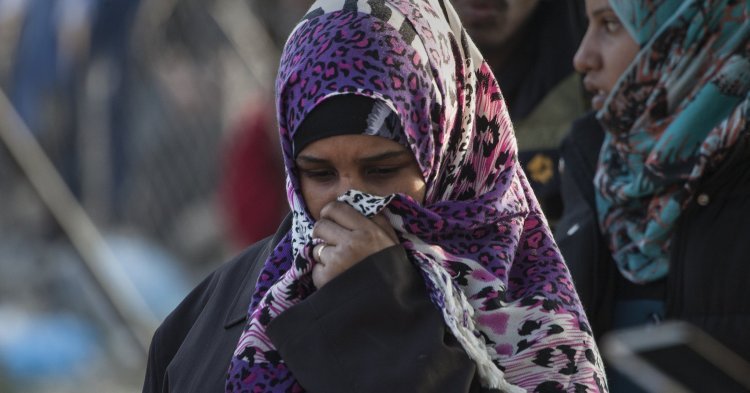The Italian elections are the last of many other events which showed that, all over the continent and beyond, democracies are under pressure. In some countries the outcomes have been sadly clear and consistent: Hungary, Poland, Turkey, Macedonia, Romania, Belarus are some of the most evident examples. In other countries, the democratic crisis is more latent but still present, as shown through the use of extraordinary and ordinary measures that make this process more visible, like the state of emergency in France, the British anti-terrorism measures and the Italian migration policy. Although tautological, it is useful to repeat that national events also have international consequences, because of the deep existing interconnections among countries. What it is less obvious is the European outcome of such tensions (not only the sums of the singular national experiences), which should become the core of a European public debate. It is not just about “better or worse” democracies: the problem lies in a consolidated system that does not guarantee protections against the bacillus of nationalism and dictatorship. Even though these aberrations are changing their forms, they remain a true danger. The absence of democratic guarantees, at least on the European level, and the potential risks which exist within the national systems in a globalised world, put democracies under pressure every day. Outcomes are not always clear, but we should keep the entire picture in mind if we want to defeat the possibility of these aberrations.
In this regard, the crisis of the national state is deeply linked with the democratic crisis and a permanent condition of under pressure democracies. As a continuum, we can consider “illiberal democracies” one of the possible extremes of the crisis. Democracies which apparently are still able to protect fundamental rights lie on the same continuum, because their democratic systems are emptied as they cannot face and decide concretely on global issues and respond to global phenomena.
This is evident if we consider the case of migration, which is often used as a justification to implement authoritarian tendencies, and represents one of the main global phenomenon that is able to reveal national contradictions (about institutions, identity, democracy). In this article in fact, I will try to investigate on our European destiny through the perspective of migration as a standpoint to ask ourselves who we claim to be as Europeans, our narrative, and who we are within the performance of political and social actions.
Analyzing migration can be a way to understand the state of our civilization. Migration is a crucial test for democracy because it is strictly linked with the capacity to respect fundamental values such as human rights and the principle of solidarity. Moreover, it is a transnational and global phenomenon with, as Sayad said, a “mirror-function”. In fact, it reveals the internal contradictions and weakness of socially constructed national identities and histories and it shows all the limits of national states in a globalised world. Migration de-naturalised what it is considered natural and forces to re-define the history which brought to the construction of the state, showing it was and it is no absolute. Closing borders, crystallising national identities, inciting fear of cultural corruption, are examples of extreme attempts of national states to regain the control they already lost.
The Italian case, the main and deadliest gateway to Europe, shows the centrality of migration when referring to democracies. Rooted fractures, social and civil insecurities (and their perception) are dividing the Italian society. Those tensions were clearly exploited during the election campaign by right-wing political parties (see the Amnesty International Italia initiative about hate speech - https://www.amnesty.it/barometro-odio/). The peak was reached when a 28-year-old man in Macerata decided to randomly shoot migrants and people who seemed like they were migrants.
Part of the disappointment of the public opinion has fed the consensus for the League party, with 18% of the total votes, which is sadly known for its rhetoric against migrants and its nationalist propaganda. Another big portion of the electorate has preferred the ambiguous narrative of the recently institutionalised - but still with a strong anti-establishment identity - Five-Star Movement, neither united nor clear on the issues of migration and the EU. This result invalidates the dominant assumption that public dissatisfaction can easily be channeled into a nationalist and violent narrative. On the other hand, the failure of moderate forces, which were unable to convince the voting public, becomes clear.
Aside from the electoral moment and the citizens’ consensus and perception, measures of migration containment were already performed by previous governments. In the last years, the responses to migration, did not represent a countertendency, as it is evident from the following examples. Progressive loss of European dimension of rescue operations, restriction of the role of NGOs operating in the Mediterranean, attempt to train the Libyan coast guard (although no control on it could be guaranteed), agreements with African countries (as it happened already with Turkey), among which the Libyan case is the most contradictory because of the absence of a single recognised state operating on the territory. Meanwhile, although the tragedy in the Mediterranean remains often silenced with 426 dead only in 2018, our sea continues to be the cemetery of Europe. Quoting Arundhati Roy: “There’s really no such thing as the ’voiceless’. There are only the deliberately silenced, or the preferably unheard”. In conclusion of this reflection, we don’t need dictators to institutionalise the externalisation of borders, and democratic contradictions can also become clear in a country that was not and is not considered truly in danger. In the absence of a pro-active supranational response, governments implement policies normalising refoulment. Although in different forms, this is evident in Italy as well as in Poland, Hungary, Turkey.
The same argument can be outlined as regards the (non-protection) human rights (HR). Some authors define HR as the “limits of politics”. We can refer to migrants as second-class citizens, as they have reduced access to protections of their origin state and they are not yet benefiting from the protection of the state where they want to arrive.
Although affirmed in many international laws, HR protection remains mainly in the hands of nation states which have constitutionalised it during the second half of the 20th century. The parallel and recent institutionalisation of containment measures of migration, which often results in policies criminalising the phenomenon, produces the reinforcement of an intergovernmental Fortress Europe. This is because HR cannot be protected on the EU level in the absence of an EU constitution and of real supranational instruments. On the contrary, HR protection can become a justification of border securitisation, in the name of the “safety” of citizens who have the right to be defended against an otherness considered as a threat.
The main outcome on the EU level is then a consolidation of a European system of legitimisation and justification of externalisation and securitisation measures. The contradiction becomes clear: on one hand we have the cosmopolitan values of the EU as the glorification of its philosophical and historical path, and on the other the aberrations of intergovernmental measures which are the main European response to crucial issues of which migration is an evident example.
All these elements show the importance of keeping a European perspective in mind to outline European outcomes. We cannot hide anymore behind the hope that the national and international crisis are just temporary circumstances, because the responses to those crises are defining today’s Europe and will define the Europe of tomorrow. Meanwhile, endangered democracies will keep existing as signs of a permanent crisis.
If we want to change our present and future with a true transformative power, we should be able to identify the dangers of this ongoing process, outlining the medium and long-term achievements which are necessary to define the realisation of a real European democracy. The success of the fight for a federal Europe to reach a political union with democratic and constitutional guarantees on the continental level, will in fact depend on the path that leads to such institutional change and we can have a clear and strong voice as civil society in defining this process. No change can be considered neutral or external to the historical, social and political context. The political foundations of a federal Europe should refer to clear values and principles starting from the recognition and critics of today’s limits. In this perspective, it is impossible to defend the status quo because it would mean accepting the decline of a clear and defined political project based on specific values and meant for specific reasons.
I would like to conclude with the words that the Italian author Andrea Camilleri said in a recent interview, when he was asked what his hopes for Italy were, although I hope he won’t be disappointed if I use his response referring to the European continent and not just to a single country.
What should we hope for the European Union then? As Camilleri said, the hope is that a migrant woman, when arriving to our continent, will think, “this is exactly the place where I would like to live”. This is the challenge for a real European democracy.


Follow the comments: |
|
